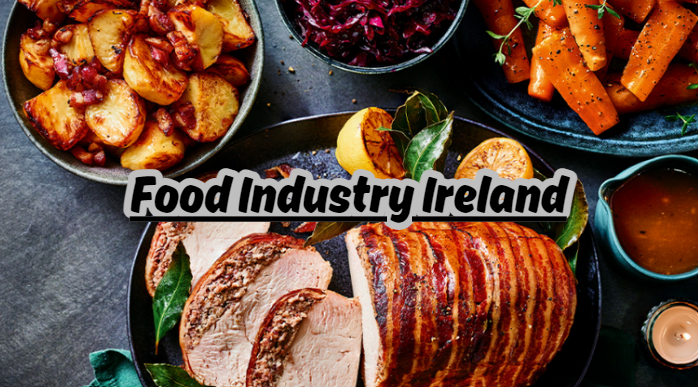Introduction
The Food Industry Ireland has long been a cornerstone of the nation’s economy, culture, and identity. Known for its lush green landscapes and high-quality agricultural produce, Ireland has carved out a niche in the global food market. This article delves into the various facets of Ireland’s food industry, exploring its history, key sectors, and challenges, as well as its role in the global market.
Historical Background
The Food Industry Ireland is deeply rooted in the country’s agrarian history. For centuries, agriculture has been the backbone of Ireland’s economy. The Great Famine (1845-1852) was a stark reminder of the country’s dependence on the potato crop. Over time, the industry diversified, with dairy, beef, and seafood emerging as key sectors. The shift from subsistence farming to commercial agriculture laid the foundation for today’s robust food industry.
Key Sectors of the Irish Food Industry
Dairy Industry
With a climate conducive to grass growth, Irish dairy farmers produce high-quality milk used in butter, cheese, and infant formula. Brands like Kerrygold have achieved global recognition for their premium quality.
Also Read: Met Éireann Snow Bomb
Meat and Livestock
The beef industry is another cornerstone of Ireland’s food sector. Irish beef is renowned for its tenderness and flavor, thanks to cattle being predominantly grass-fed. Additionally, the pork and poultry industries contribute significantly to the economy, with exports reaching markets worldwide.
Seafood
With an extensive coastline, Food Industry Ireland has a thriving seafood industry. Salmon, shellfish, and whitefish are among the most sought-after products. Sustainable fishing practices and aquaculture have become increasingly important in ensuring the industry’s long-term viability.
Beverages
Food Industry Ireland is famous for its beverages, particularly whiskey and stout. Irish whiskey, led by brands like Jameson, has seen a resurgence in recent years, while Guinness remains an iconic global brand. The craft beer and cider segments are also growing rapidly, driven by innovation and consumer demand.
Processed Foods
The processed food sector, including ready-to-eat meals, snacks, and baked goods, has expanded significantly. Companies like Kerry Group and Glanbia play pivotal roles in supplying ingredients and products to global markets.
Ireland’s Role in the Global Market
Ireland’s food industry is heavily export-oriented. The UK, EU countries, the United States, and China are key markets for Irish food products. The “Origin Green” program, a sustainability initiative by Bord Bia (the Irish Food Board), has enhanced Ireland’s reputation as a producer of high-quality, sustainable food.
Challenges Facing the Industry
Brexit
The UK is a significant trading partner for Ireland. Brexit has introduced complexities such as trade barriers, regulatory differences, and potential disruptions in supply chains. Irish companies have had to adapt by diversifying export markets.
Climate Change
Climate change poses a significant threat to agriculture and food production. Rising temperatures, unpredictable weather patterns, and the need to reduce greenhouse gas emissions have prompted the industry to adopt more sustainable practices.
Competition and Innovation
Global competition requires Irish companies to remain innovative. Investing in research and development, improving supply chain efficiency, and meeting evolving consumer preferences are essential for maintaining a competitive edge.
Labor Shortages
The food industry faces labor shortages, particularly in farming, processing, and hospitality sectors. Automation and training programs are being explored as solutions.
Opportunities for Growth
Sustainability and Green Practices
Ireland’s commitment to sustainability through initiatives like Origin Green provides an opportunity to lead the way in eco-friendly food production. This focus aligns with global consumer trends favoring environmentally responsible products.
Technological Advancements
Embracing technology can revolutionize the Food Industry Ireland. Precision farming, blockchain for traceability, and AI-driven supply chain management are areas with significant potential.
Diversification of Products
Expanding into plant-based foods and alternative proteins can help Irish companies tap into emerging markets. The demand for vegan and vegetarian options is growing worldwide.
Tourism and Culinary Experiences
Food tourism is a growing trend, and Food Industry Ireland rich culinary heritage attracts visitors from around the globe. Promoting local food festivals, farm-to-table dining, and cooking experiences can enhance this sector.
Conclusion
The Food Industry Ireland is a vital part of the country’s economy and culture. While challenges like Brexit and climate change pose significant risks, opportunities abound in sustainability, innovation, and diversification. With a strong commitment to quality and green practices, Ireland is well-positioned to continue thriving in the global food market. As the industry evolves, it will undoubtedly remain a source of national pride and economic strength.


